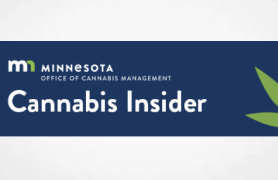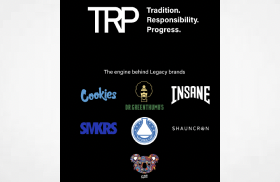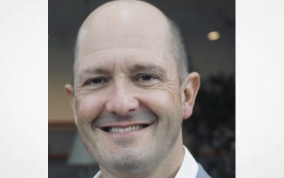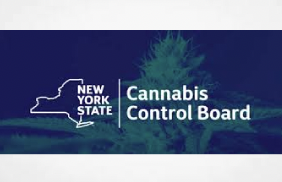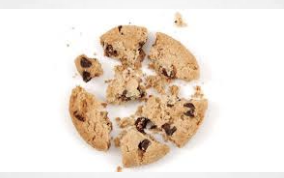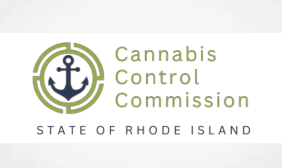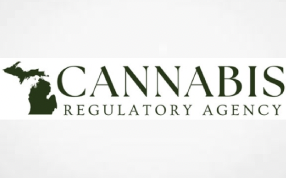Important reminder for applicants about refund deadline and true-party-of-interest violations
This is a final reminder to applicants who applied for a license preapproval and were denied during the review process that if you do not wish to have your current application entered into the next licensing cycle, you must fill out and submit the application refund form by January 10 at 11:59 p.m. CST. Please note, a request for a refund must be made by the applicant named in the original application and a refund will be made via check.
As we shared in December, applicants not seeking a refund who wish to continue with the application process will have the opportunity to respond to requests for more information to update applications and correct issues found during the initial review. However, there are limited instances where you will not be allowed to correct, and your application will remain denied. They are:
- Violations of section 342.185, subd. 2, where an individual that is a true party of interest on the applicant’s capitalization table(s) is also listed as a true party of interest on at least one other application for:
- the same license type (e.g., manufacturing, retail, mezzobusiness); or
- a different license type unless Chapter 342 explicitly authorizes a person to simultaneously hold both licenses (e.g., section 342.31 allows a person to hold both a manufacture and a cultivation license).
- Violations of section 342.185, subd. 7, where an application completely fails to disclose all true parties of interest. Applicants who disclose a true party of interest in the disclosure of ownership and control form, but not the capitalization table (and vice-versa) will be allowed to correct those failures.
Once the applicant has completed and submitted the application refund form, OCM will remove the applicant from the list of applications and start to process the refund. If the applicant does not notify the office by this time, the application will be entered into the next licensing cycle and is not eligible for a refund of the application fee. These limitations do not apply to an individual, business, or entity that holds no more than 10% ownership of the business entity.
|
|
Social equity applicant verification window opens Jan. 15
OCM will launch the SEA verification on Jan. 15. This window will be open until Jan. 30. Access the Social Equity Applicants webpage for more information.
Important dates for upcoming standard licensing cycle
| Date | Description |
|---|---|
|
Jan. 10 |
Deadline for license preapproval applicants to request refund of application fee |
|
Jan. 15 |
Social equity applicant verification window opens |
|
Jan. 30 |
Social equity applicant verification window closes |
|
Feb. 14 |
Post application guidance and materials to website |
|
Feb. 18 |
License application window opens |
|
March 14 |
License application window closes |
|
May-June |
Tentative date to hold lottery for capped license types |
|
|
Become a grant reviewer with OCM!
The Office of Cannabis Management (OCM) invites community members, subject matter experts, and advocates to join our competitive grantmaking process as reviewers. By participating, you’ll help ensure fairness, transparency, and diversity in how grants are awarded. This opportunity also allows you to expand your skills and provide valuable feedback to improve OCM’s future grant processes.
Learn more on the Become a Grant Reviewer webpage.
|
|
Choosing a path to licensure for businesses selling hemp-derived products
As the Office of Cannabis Management moves forward with the licensing of both adult-use cannabis and lower-potency hemp businesses, it’s important to understand the changes that are coming to what products are allowed for sale, and how a business becomes authorized to sell those products. We want to make sure that operators in the hemp-derived space have all the necessary information needed to make important business decisions.
Once the rules for Minnesota’s cannabis industry are adopted, which is expected to occur in the first quarter of 2025, the retail registration system for selling hemp-derived cannabinoid products will transition to a licensing system for selling lower-potency hemp edibles under Minnesota Statutes, Chapter 342.
Currently, and up until the adoption of rules, a retailer registers with OCM to sell hemp-derived cannabinoid products under Minnesota Statutes, section 151.72. These products come in the form of an edible or a beverage for human consumption, or products that are for external use only and are labeled as such.
After the adoption of rules, these products and sales are regulated under Minnesota Statutes, section 342.46, which requires that the only approved hemp-derived products that can be sold with a lower-potency hemp license are edibles, including beverages. The sale of all other products (i.e., vapes, tinctures, flower, etc.) will require a cannabis business license.
Any registered businesses currently selling HDCPs that want to continue selling only lower-potency hemp edibles and beverages after the rules have been adopted will be required to obtain a lower-potency hemp edible retailer license. These lower-potency hemp edibles and beverages may also be sold by businesses who hold a license for a cannabis retailer business, cannabis microbusiness, cannabis mezzobusiness, or a medical cannabis combination business with a retail endorsement.
Businesses that are registered with OCM and in good standing with the state are eligible to have their registration converted to a license. Details about converting a registration or applying for a lower-dose hemp edible license will be announced at a later date. The online registration portal currently available on the OCM website will close immediately when the rules are adopted. Any unregistered business that wants to sell lower-potency hemp edibles, including beverages, after that date will have to wait to apply for a license in a future licensing round.
Finally, businesses that are manufacturing hemp-derived products will need to determine whether a lower-potency hemp edible manufacturer or a cannabis manufacturer license (or micro-, mezzo-, or med combo with appropriate endorsement) is the right license for your activities. A lower-potency hemp manufacturer may only manufacture and sell hemp concentrate, artificially derived cannabinoids, and lower-potency hemp edibles. Current hemp product manufacturers that wish to make hemp-derived consumer products will need to obtain a cannabis manufacturer license (or micro-, mezzo-, or med combo with appropriate endorsement), and the next opportunity to do so is during the standard licensing cycle beginning Feb. 18 and closing March 14.
|
|
|
Resources and Reminders
Social equity verification webinar on Jan. 14
 OCM will host an informational webinar on Jan. 14 at 4 p.m. to guide prospective social equity applicants through the social equity verification process. A social equity verification guide will be posted on the OCM website. OCM will host an informational webinar on Jan. 14 at 4 p.m. to guide prospective social equity applicants through the social equity verification process. A social equity verification guide will be posted on the OCM website.
Please register online using the following link to attend: Social Equity Verification Informational Webinar registration. If you can’t attend the virtual session on Jan. 14, OCM will post a recording of the webinar on its website at a later date. If you have a question about the social equity verification process that you would like to be considered during the webinar, you may submit it with your registration. Note: questions will be used to help inform OCM’s future resources, presentations, and FAQs listed on the webpage. |
|
|
|
Local governments – please review to prepare for zoning compliance certification requests!
OCM has launched updated guidance for local government partners. The updates can be found on the office’s webpage specific to local governments and in the “Guide for Local Governments on Adult-Use Cannabis.” The latest version of this guidebook contains updated information about the implementation of Chapter 342 and the key role of local governments. This guidebook also contains new forms and items in the appendix, including new guidance related to compliance checks and current hemp-derived enforcement work.
Additionally, as part of the launch of the latest local government guide, OCM is asking for information from local government partners. We are asking for each local unit of government to:
- Complete the Local Unit of Government Cannabis Licensing Contact and Delegation Form
- Register for an Accela account
To complete these two requests, please visit our new Contact and Delegation Form & Accela Account Registration Process webpage. This page includes instructions and background information to help our partners with these steps. We are grateful for your time and partnership as we continue to prepare for the implementation of the adult-use licensing framework.
As always, check out the local government section on the FAQ page for more information.
